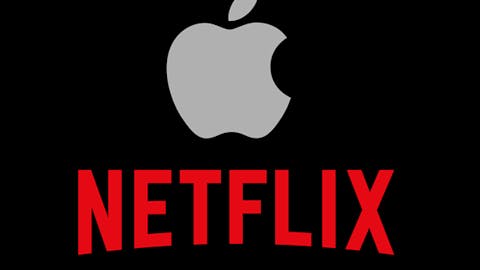Netflix, Inc. (NASDAQ:NFLX) has been one of the best performing stocks, not only in the tech sector, but in the broader large-cap category this year. Although it has receded significantly from the $120 (post-split) plus mark it was trading at in early-August, the magnitude of the rise Netflix, Inc. (NASDAQ:NFLX)’s stock has had this year can be gauged by the fact that it is still trading up by 93.65% year-to-date. A lot of those yearly gains were driven by the first quarter numbers declared by the company in April, which led its stock rallying by 57.7% during the second quarter. With those kind of phenomenal gains, it’s not hard to figure out why a lot of investors and analysts are gung-ho about Netflix, Inc. (NASDAQ:NFLX). However, with those kind of gains and its lofty valuation, it’s also easy to see why others are less spirited about the company and its stock now, and when it comes to hedge funds, they appear to be drifting towards the latter category. During the second quarter, the number of hedge funds tracked by Insider Monkey that counted Netflix, Inc. (NASDAQ:NFLX) as one of their holdings increased by three to 50, while the aggregate value of their holdings in the stock mirrored the gains it made during the quarter, being up by almost 60% to nearly $6.15 billion. Let’s take a closer look at what hedge funds really think about the stock in this article.

scyther5 / Shutterstock.com
We track hedge funds and prominent investors because our research has shown that historically their stock picks delivered superior risk-adjusted returns. This is especially true in the small-cap space. The 50 most popular large-cap stocks among hedge funds had a monthly alpha of about six basis points per month between 1999 and 2012; however the 15 most popular small-cap stocks delivered a monthly alpha of 80 basis points during the same period. This means investors would have generated ten percentage points of alpha per year simply by imitating hedge funds’ top 15 small-cap ideas. We have been tracking the performance of these stocks since the end of August 2012 in real time and these stocks beat the market by 60 percentage points (118% return vs. S&P 500’s 57.6% gain) over the last three years (see the details here).
The second quarter saw several large hedge funds that previously counted Netflix, Inc. (NASDAQ:NFLX) as one of their largest holdings, either reduce their stake in the company significantly or leave the stock entirely. The most prominent among them was legendary activist investor Carl Icahn‘s Icahn Capital LP, which until the end of the second quarter was the second-largest shareholder of Netflix, Inc. (NASDAQ:NFLX) among the funds we track. Mr. Icahn publicly disclosed via a tweet on June 24 that he had “sold last of our $NFLX today”. Philippe Laffont‘s Coatue Management, which at the end of the first quarter held almost 1.8 million shares of Netflix, Inc. (NASDAQ:NFLX) and was the largest shareholder of the company among the funds tracked by us reduced his stake by 83.7% during the April-June period, to just 286,585 shares. Nothing perhaps explains this change in sentiment of large hedge funds towards Netflix, Inc. (NASDAQ:NFLX) better than what Greenlight Capital‘s David Einhorn wrote about the company in his second quarter letter to his shareholders:
“Practically: NFLX changed its story and pushed its promises into the distant future, with grand hopes for the decade starting in 2020. It transitioned from being a company judged by how much it earns into a company judged by how much it spends. Whether the spending proves successful won’t be known during the investment horizon of most NFLX shareholders. In today’s market, the best performing stocks are companies with exciting stories where accountability is in the distant future.”
Mr. Einhorn highlights in the letter how even though the company reported EPS of $0.36 for the first quarter of the year, significantly below analysts’ consensus estimate of $0.63, its shares rallied 12% the next day and were up by almost 100% year-to-date at the end of June. He also points out how analysts who earlier were estimating the company to report EPS of $0.86 at the end of June before the first quarter results came out, quickly slashed their estimates the next day to $0.30 while still remaining aggressively bullish on the company.
Follow David Einhorn's Greenlight Capital
According to recent reports in the media, after launching its service successfully in Japan recently, the company is on-track for its planned international roll-out and will be launching its service in South Korea around January of next year. Aside from analysts at Sanford C. Bernstein, who reiterated their ‘Sell’ rating on the stock on July 16, most analysts and brokerages that cover the stock remain heavily bullish on it, with price targets as high as $161. With analysts and large hedge funds having vastly different opinions on the stock, and Netflix itself also in the midst of a slight shift in its business strategy, it will be interesting to watch how Netflix, Inc. (NASDAQ:NFLX) performs over the next few quarters and who can claim bragging rights for predicting its success or failure.
Disclosure: None




